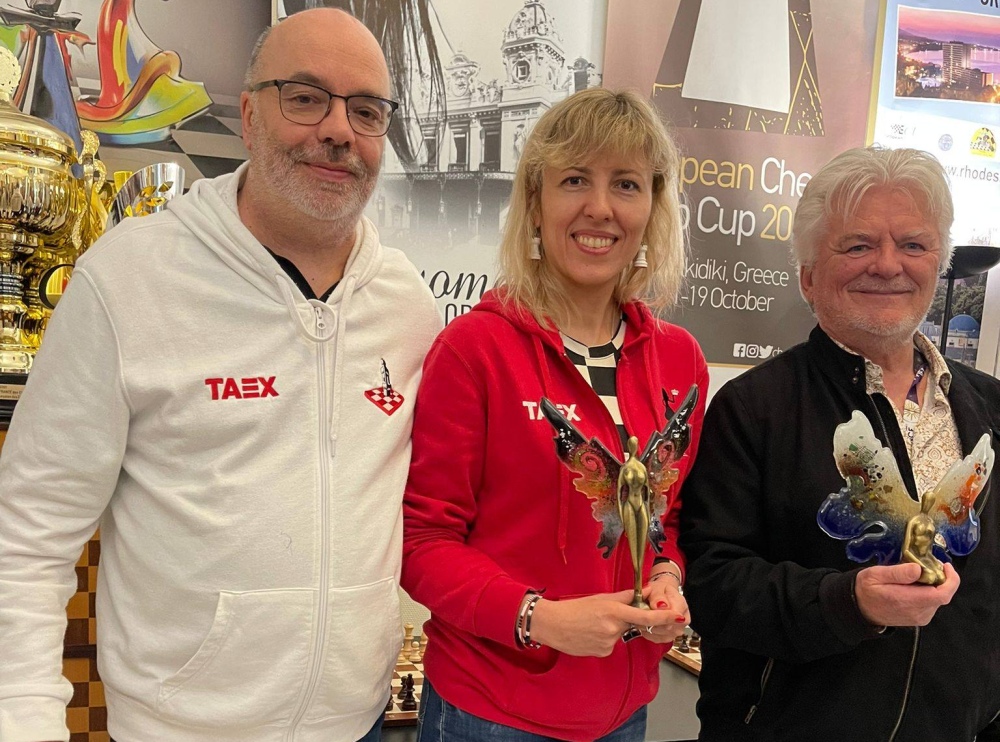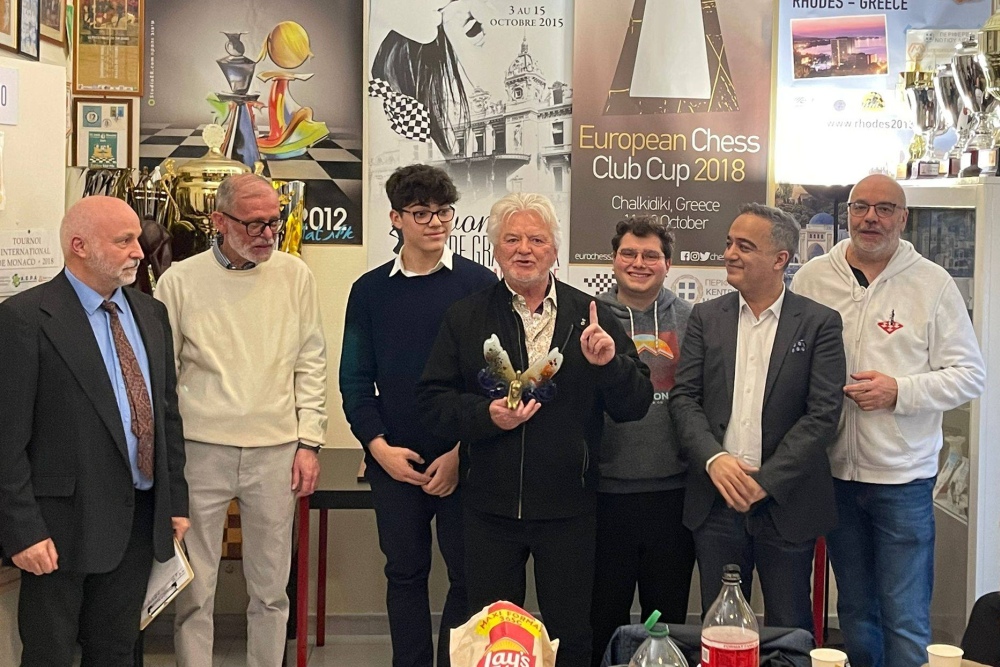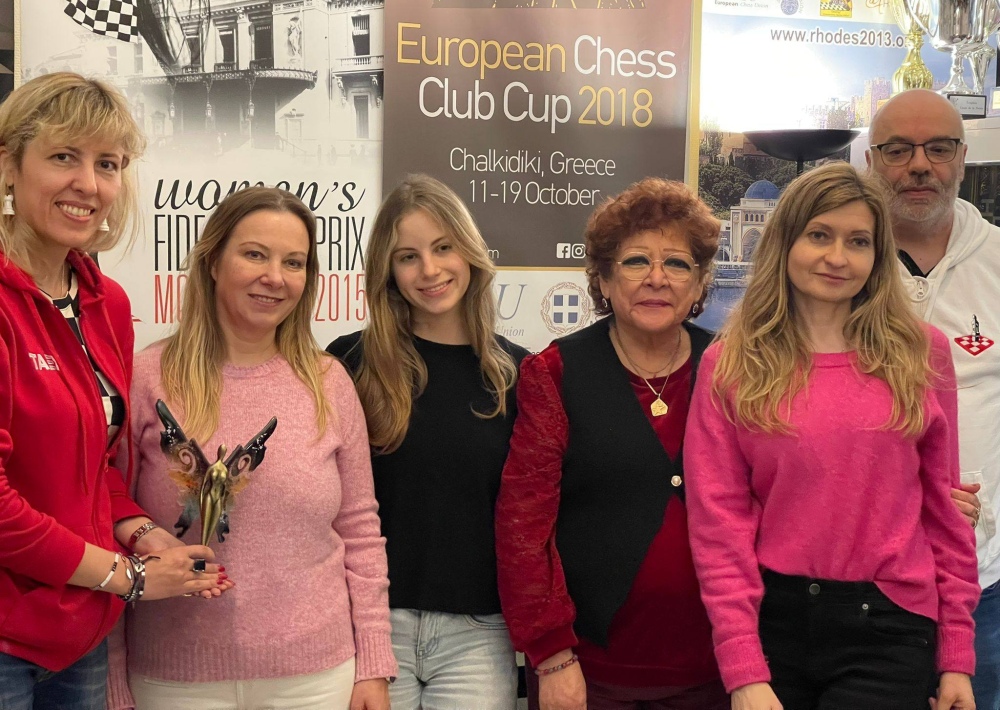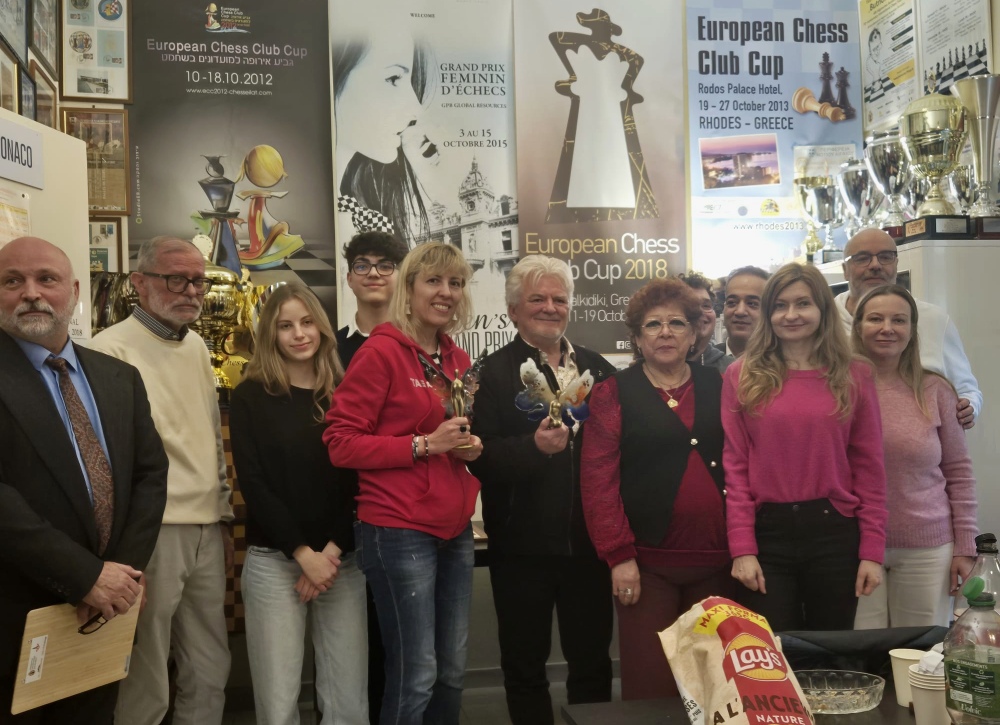
IM Damir Levacic and WGM Tatiana Dornbusch are newly crowned chess champions of еру Principality. The Monaco Chess Championship 2026, a 7-round Swiss tournament held from February 23 to March 1, brought together the country’s leading players with man and women competing in the same pool. The event not only determined the national titleholders but also finalized the selection of the teams representing Monaco at the upcoming Chess Olympiad.
Open and women’s titles
IM Damir Levacic emerged as the clear winner of the tournament, scoring 5.5/7 to secure the title of Monaco Champion 2026. Despite suffering a third-round defeat at the hands of top seed GM Amir Bagheri, Levacic finished strongly with three straight victories to clinch the title.

Five players shared second place on 5 points, reflecting the highly competitive nature of the championship:
- GM Amir Bagheri
- Riccardo Costalonga
- GM Igor Efimov
- FM Alexis Cahen
- FM Patrice Verdier
Tie-break criteria determined the final ranking among the players on equal points.
WGM Tatiana Dornbusch secured the title of Women’s Champion of Monaco 2026, finishing as the highest-ranked female player with a score of 4.5/7. She edged out WIM Marija Zvereva who achieved the same score but had an inferior Buchholz-tiebreak.

WCM Svetlana Berezovska and WCM Fiorina Berezovsky also completed solid tournaments.
Monaco teams for the Chess Olympiad
Based on the results of the national championship and selection criteria, the Monaco Chess Federation confirmed the following line-ups for the forthcoming Chess Olympiad:
Open team
- IM Damir Levacic
- GM Amir Bagheri
- Riccardo Costalonga
- GM Igor Efimov
- FM Alexis Cahen
Women’s team
- WGM Tatiana Dornbusch
- WIM Marija Zvereva
- WCM Svetlana Berezovska
- WCM Fiorina Berezovsky
- WIM Julia Lebel (82)

The composition of both teams combines experienced titled players with motivated competitors, aiming to represent Monaco with strength and stability on the international stage.

